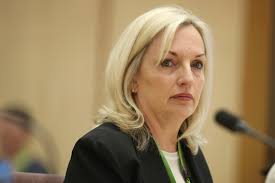The 27 public servants earning more than $1 million
They are members of an elite club, pocketing annual salary packages of more than $1 million a year.
But the 27 men and women aren’t investment bankers, brain surgeons or casino moguls – they are Australian public servants.
With pay packets that dwarf their international counterparts, they raked in a combined $35.3 million in the 2019/20 financial year.
A 9News analysis of all Federal Government departments and agencies reveals the highest-earning key management personnel earn more than 99.9 per cent of the rest of us.
Scroll down to see the full list.

“They’re not servants,” Emilie Dye, policy director of the Australian Taxpayers’ Alliance, told 9News.
“They’re making a CEO’s salary. The difference with a CEO’s salary – you don’t have to buy their products.
“They’re doing something for the good of society and they should see it is such.”
The fattest renumeration was $3.15 million paid to Stephen Rue, CEO of the NBN Co.
Next was Paul Broad, CEO and MD of Snowy Hydro, at $2.08 million.
Third and fourth spots went to Christine Holgate and Bob Black, ex-CEO and ex-COO of the Australian Postal Corporation, both of whom departed their more than $1.5 million a year jobs last year in the fallout of the scandal over the gifting of $20,000 worth of luxury Cartier watches to executives as rewards.

The extent of the bloated packages, which are far higher than those of any of Canberra’s politicians including the prime minister, emerge as many key workers tighten their belts amid COVID’s wage freezes, reduced hours and job losses.
Richard Wankmuller, CEO of Inland Rail at the Australian Rail Track Corp, received $1.5 million. He’s well-placed for a comfortable life after he retires in mid-2021.
The NBN has a whopping seven people in the $1 million-plus club: in addition to the CEO, it includes two chief customer officers, the CFO, chief network deployment officer and chief strategy officer.
It’s a rich management structure for a government-owned corporation that doesn’t pay corporate tax.
Raphael Arndt, chief investment officer at Future Fund Management, pulled in $1.4 million – almost half ($628,940) of which was in bonuses.
Similarly, Alison Tarditi, chief investment officer at Commonwealth Superannuation Corporation, received $1.2 million – with half ($607,725) from bonuses.








